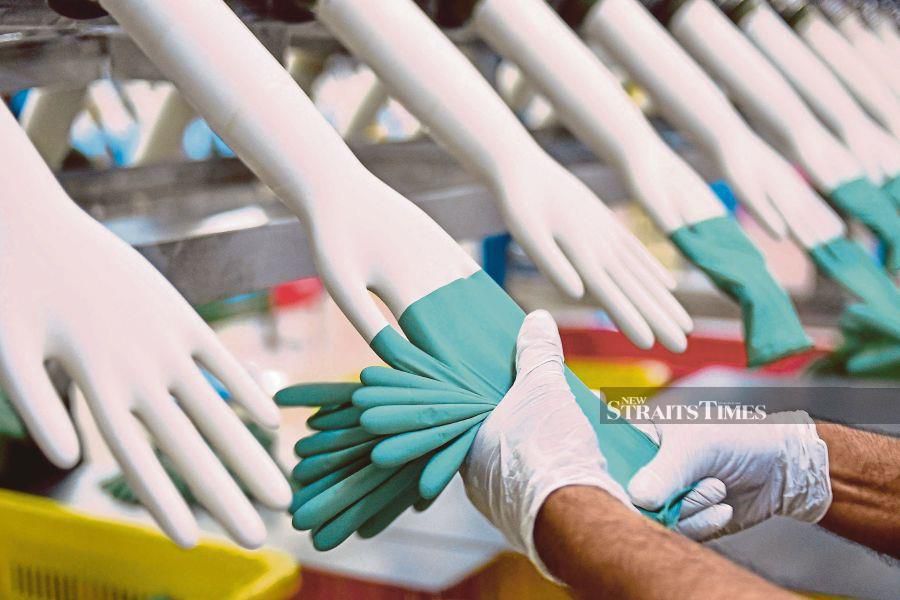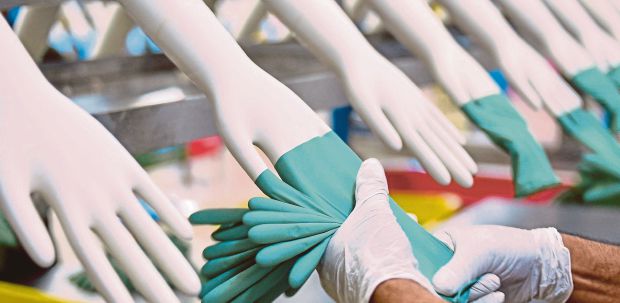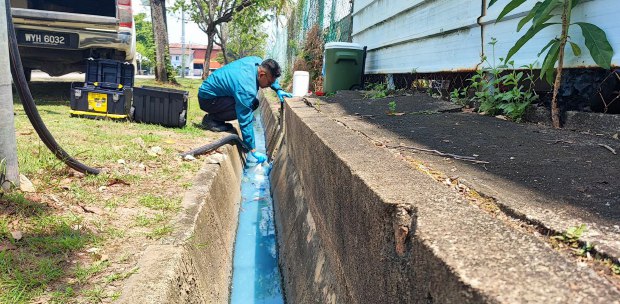PUTRAJAYA: Rubber glove manufacturers in the country should no longer focus solely on the healthcare sector, but also tap the non-medical industries to drive future demands.
Minister of Plantation Industries and Commodities, Datuk Zuraida Kamaruddin said this is timely considering the re-opening of Malaysian borders since April 1.
"This will spur economic recovery with spill-over effects on the travel/tourism, manufacturing and food & beverage sectors.
"While demand for gloves would not be able to match levels seen during the pandemic stage of Covid-19, glove makers are aware that there are other industries out there which critically need gloves which are currently not prioritised," she said in a statement today.
She said disposable non-medical grade gloves (like their medical-grade counterparts) came in a range of sizes, colours, thicknesses and textures.
"Applications for such gloves exist in businesses from tattoo parlours to laboratories to childcare centres. While the F&B industry was only a small consumer of gloves for the longest time, the past eight to 10 years has seen rising awareness level with industry players and consumers alike taking cognisance of the fact that handling food revolves around the levels of cleanliness.
"This even applies to the semiconductor electronic industry to protect an electrical or electronic component from contamination," she said.
The prices of glove stocks on Bursa Malaysia have also slumped substantially since the beginning 2H 2021.
This comes about as manufacturers ranging from the Big-Four glove makers to other smaller producers grapple to normalise the average selling prices (ASPs), which is inching closer to their pre-pandemic levels amid an increasingly competitive operating landscape.
This is due to the surge in raw material costs, manpower constraints, logistical challenges and inflationary pressure and it can only be handled if the higher production cost is passed down to end-users.
"Painful as it is, we have to accept that it is highly unlikely that the 'gold rush' days at the height of the Covid-19 pandemic in 2020, where every glove stock one touched turned into gold which then prompted the mushrooming of new industry players – will recur anytime soon especially as the world is gradually transitioning into the endemic phase.
"Rather than to stay still and let opportunities slip by us, we should be creatively exploring ways and means to make the glove industry "lucrative and thriving again" although certainly not at the similar pace when demand was soaring and ASP skyrocketed to record levels," added Zuraida.
She said she had personally just completed a 10-nation tour which included Egypt, Qatar, Pakistan and Turkey to promote Malaysian commodities and open up new markets.
"During the visits, we signed numerous MoUs, while I also took the opportunity to dispel some allegations against our commodities and set the records straight.
"We have constantly been working closely with our local industry players and by continuing to do so, there is no doubt that our local rubber glove industry will continue to thrive," she added.





